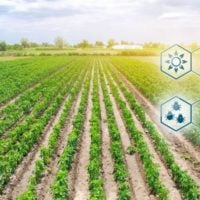Deadline: 01-Dec-2025
The GenAI for Good Challenge by IEEE Humanitarian Technologies and the International Telecommunication Union (ITU) is inviting innovators to develop an AI-powered chatbot solution that supports smallholder farmers and agricultural advisors in Lesotho by providing timely and localized agricultural advice through scalable and accessible digital tools, aiming to improve productivity, resilience, and food security in 2025.
The challenge focuses on designing a generative AI-driven chatbot that offers localized evidence-based farming advice, personalized responses, connects users to the Food and Agriculture Organization of the United Nations and Ministry resources, and supports multilingual and voice accessibility to enhance agricultural advisory services.
Agriculture in Lesotho employs nearly one-third of the workforce and is critical to food security, yet farmers and agricultural advisors face limited services, scarce digital tools, and increasing climate pressures. Without innovative solutions, rural resilience remains vulnerable. The chatbot initiative aims to strengthen extension services particularly in rural areas, ensuring farmers receive timely, localized guidance that can boost productivity, build resilience, and create new market opportunities.
The AI-powered chatbot, envisioned to function via SMS, WhatsApp, and voice, will meet users where they are, serving thousands of farmers and extension workers nationwide. By enhancing the efficiency and knowledge delivery of agricultural advisors, it is expected to reduce crop loss, improve food security, and support climate resilience along with sustainable agricultural practices.
Through the GenAI for Good Challenge, selected teams will progress through phases starting with application and prototyping, followed by refinement through expert and stakeholder feedback. Finalists will present to a global panel, with winning teams gaining up to $25,000 in grants and moving into deployment planning with IEEE, ITU, and in-country partners. Implementation will be in collaboration with UN offices, global partners, national ministries, and ITU local leads, aligned with urgent challenges identified by UN agencies and local organizations.
This initiative presents an opportunity for innovators to advance their solutions beyond theoretical models, to real-world deployment with measurable impact on rural communities in Lesotho, scaling from local to national levels to deliver meaningful improvements in agricultural productivity and rural livelihoods.
For more information, visit IEEE Humanitarian Technologies.









































